Technologies for the production of transportation fuel substitutes from waste – Summary Report
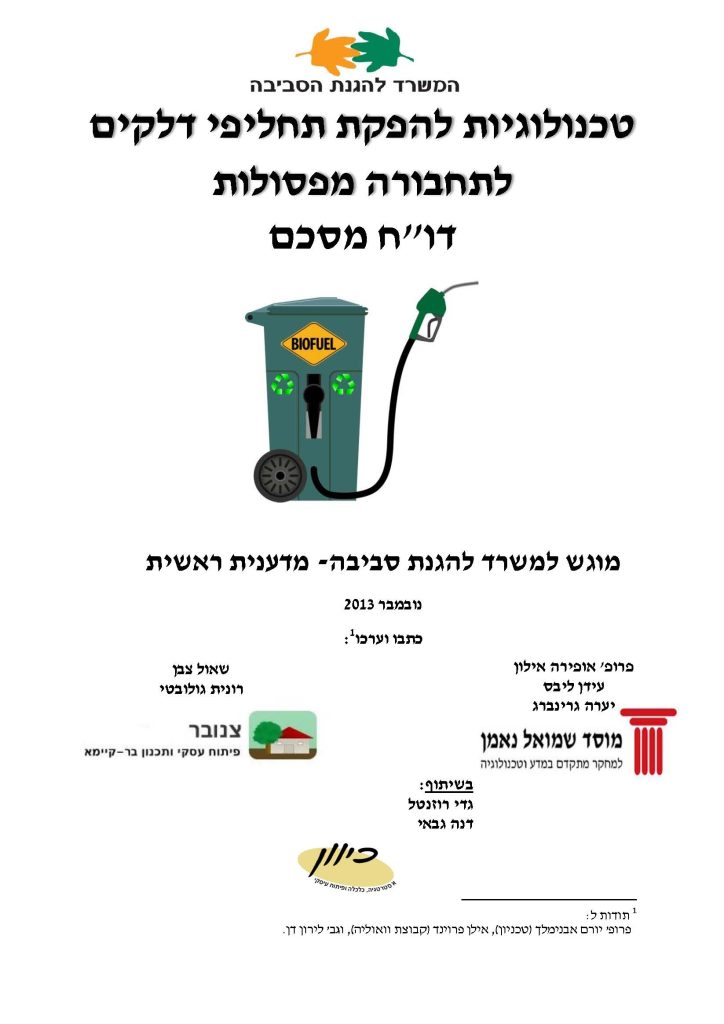
This work was carried out within the framework of a 2011 Government decision regarding the operation of a national program to reduce global dependence on oil, and a 2013 Government decision regarding reduction of Israel’s dependence on oil for transportation. The study analyses the current available technologies for using waste as a source for alternative […]
Integration of waste-derived alternative fuels in Israel’s transportation system – Phase A: literature review
This paper was submitted to the Ministry of Energy and Water Resources, and provides a thorough review of the current available technologies for using waste as a source for alternative fuels, as well as an estimation of the available waste supply in Israel. The document layout: Review of the three waste-derived transportation fuel production technology […]
Integration of electric and hybrid vehicles in Israel’s transportation system – Phase A: literature review
This document holds the first phase of the paper, and entails a literature review about alternative vehicle drivetrains (with emphasis on the various forms of electrical and hybrid vehicles).
Oil Shale Occurrences in Israel – Geological Updated information

Oil shale occurrences underlie about 15% of Israel’s land surface. The geological reserves (rocks with at least 7% total organic carbon) are estimated to exceed 370 billion tons. The potential yield of shale oil is more than 30 billion tons, with an average grade supposed to be ~20 G/T. Most of the deposits are close […]
Adaptation to climate change in the local authorities

ICCIC team prepared a report on adaptation policy recommendations for local authorities in Israel. Climate change is expected to affect the water sector in the State of Israel, the health of residents, the existence of biodiversity and ecosystems supplying ecological services, urban climate and our energy consumption in homes and the communities where we live. […]
Clean Energy Innovation Policy in Israel: Identifying Fundamental Principles through a Case Study of Smart Grid Policy
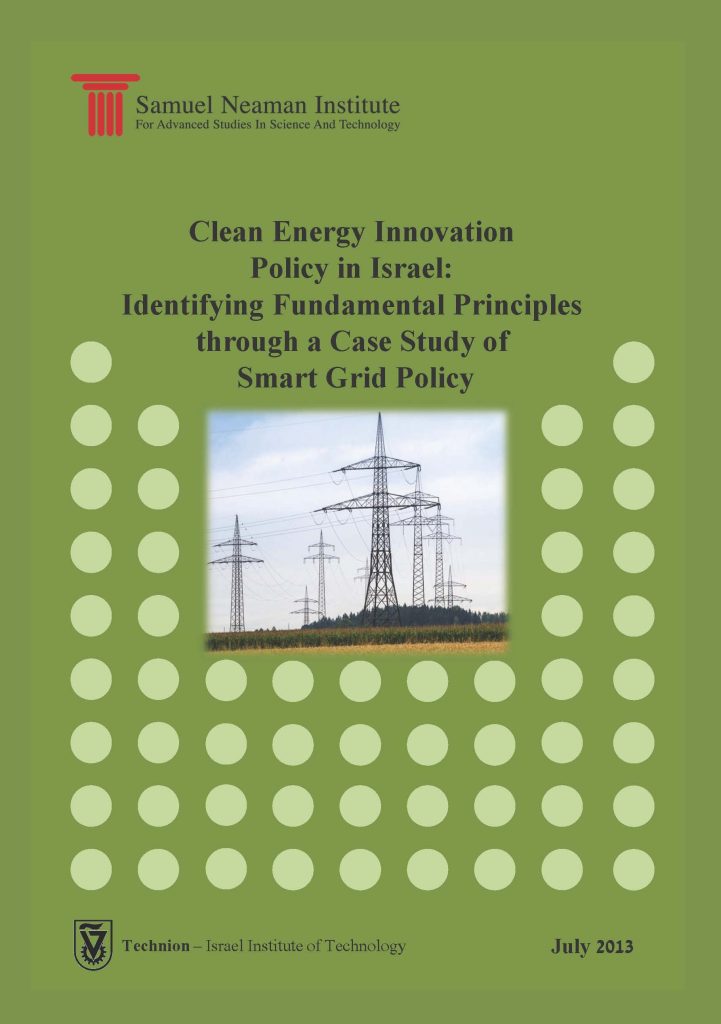
This project has been conducted in cooperation between the Samuel Neaman Institute for Advanced Studies in Science and Technology (SNI) and the London School of Economics and Political Science (LSE). The goal of the project has been to analyze policy lessons emerging from Israel’s successful efforts to spark, direct, and accelerate the process of technological […]
Report #2– Israel Adaptation to Climate Change Policy Recommendations
The Israeli Climate Change Information Center (ICCIC) was founded in March 2011, at the University of Haifa by the Ministry of Environmental Protection, as part of the national program for Israel’s adaptation to climate changes, set by the Government’s Resolution 474 ( 2009). The main goal of the ICCIC is to develop a national scientific […]
Global challenges for the water industry in oil and gas production
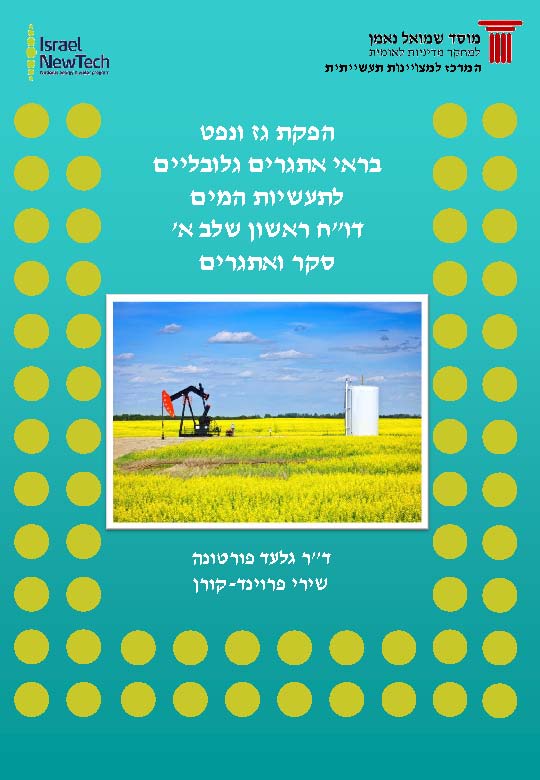
This report reviews the oil and gas production industry with the purpose of describing the role of water in the production process. It is focused on water management, and water treatment for reuse/recycle or authorized emission to the environment. This is a first among seven reports reviewing water in seven global industrial sectors. Serving the […]
National Environmental Priorities of Israel, Position Paper VII : greenhouse gases mitigation plan in Israel, 2011
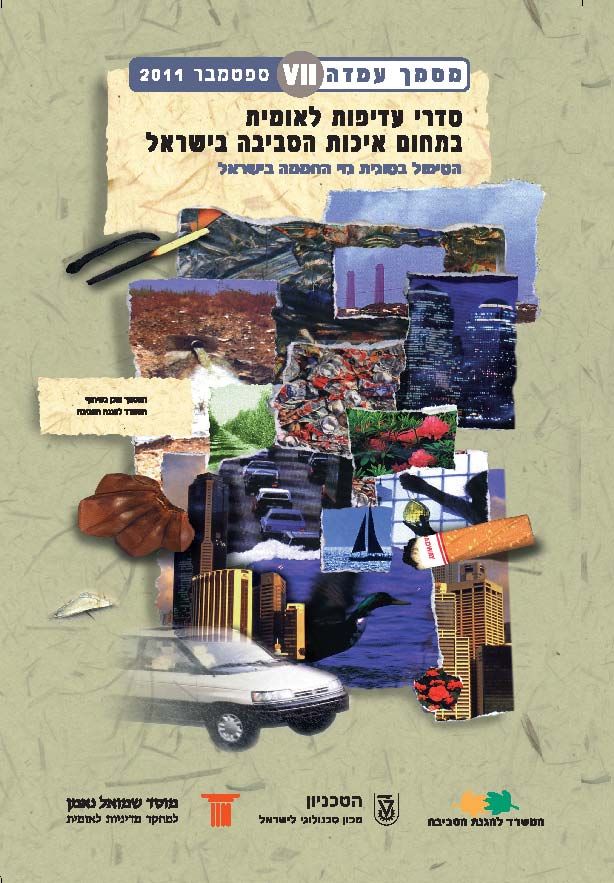
The work of the Samuel Neaman Institute in the field of the environment is considered significant and is an important resource for decision makers in Israel. One of the Institutes’ main roles is to bridge between academia, industry and governmental decision makers by offering the capability of providing government agencies with applicable and timely information […]
Mapping of National Research Infrastructures in Israel
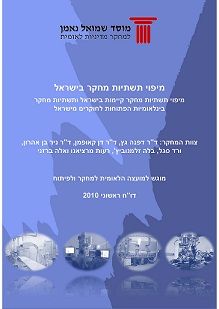
The Neaman Institute won a tender of the Israel National Council for Research and Development – the National Committee for Research Infrastructures (VATAM) – through the Science and Technology Ministry – to conduct a study with respect to the mapping of national research infrastructures. The purpose of the research is the mapping of the existing national […]
